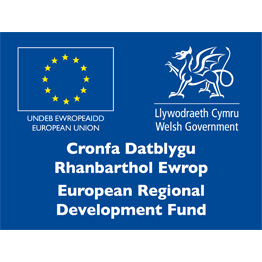Brother Industries (U.K.) Ltd. Launches Toner Cartridges Produced Using Recycled Plastics Thanks to Industry-Academia Collaboration
Brother Industries Ltd. is a Japanese multinational electronics and electrical equipment company headquartered in Nagoya, Japan with 37,000 employees globally.
Brother Industries (U.K.) Ltd. (“BIUK”) is based in Wrexham, North Wales. They are at the forefront of the Brother Groups recycling activities and produce printing consumables and plastic mouldings for a diverse range of industrial and consumer electronics. BIUK has a highly developed free returns system for end-of-life toner cartridges. customer returned cartridges are remanufactured, and any materials are reused or recycled.
The company is adopting the principles of ‘circular economy’, placing the business at the forefront as an ethical and sustainable manufacturer of plastic components and becoming the Recycling Technology Centre (RTC) for the global Brother Group. ASTUTE 2020 supported BIUK in investigating the technical difficulties of using recycled high impact polystyrene (HIPS) materials.
Challenges
The recently published research on the feasibility of recycled plastic products presents some contradictory arguments. From this perspective, the research project addressed the following questions:
- Can BIUK recycle High Impact Polystyrene materials recovered from their own end-of-life products, to make new products (closed-loop recycling)?
- If so, how many times can HIPS be recycled before any change in properties becomes unacceptable?
- Can HIPS received from different sources (open-loop recycling) be recycled as these have many contrasting properties?
Solution
ASTUTE 2020 worked with Brother Industries (U.K.) Ltd. to investigate the degree of degradation in a range of material properties to guarantee the quality of the recycled plastic materials is maintained, taking into account the changes in both macroscopic and microscopic properties.
In this particular case, the following effects were examined and analysed:
- Multiple cycles of hips on the tensile, impact, and thermal properties
- UV treatment properties to measure the outcome of sun exposure to the product on the materials’ degradation.
The research confirmed that material properties are not adversely affected by reprocessing hips up to eight processing cycles nor by exposure to uv up to 500hr continuously. These behaviours can be explained by the predominance of crosslinking reactions that can promote an increased crosslink density or grafting reaction in the elastomeric phase during the injection moulding.
The unique collaboration between BIUK and ASTUTE 2020 has proved that blending different grades of hips will not dramatically decrease the blend properties and BIUK can incorporate different classifications of hips received from diverse sources for use at their site for further production.
Impact
The collaboration has increased both parties’ understanding of recycled materials and led to fruitful knowledge exchange on processes and technology between BIUK and the ASTUTE 2020 team.
BIUK can now transition products currently made from virgin resins to recycled resins, creating a direct environmental impact, reducing the use of raw materials, saving energy and reducing CO2 emissions from manufacturing and landfill. As a result, this will contribute to government targets, the paris agreement and UN sustainable development goals.
Following production and quality tests, cartridges produced using recycled material cartridges are now in full production, with the expectation as a result of the collaboration to make all cartridges from recycled material and expand this to other products such as brother's printers, strengthening the profile of BIUK RTC as well as the company's long-term strategy to operate in North Wales.

